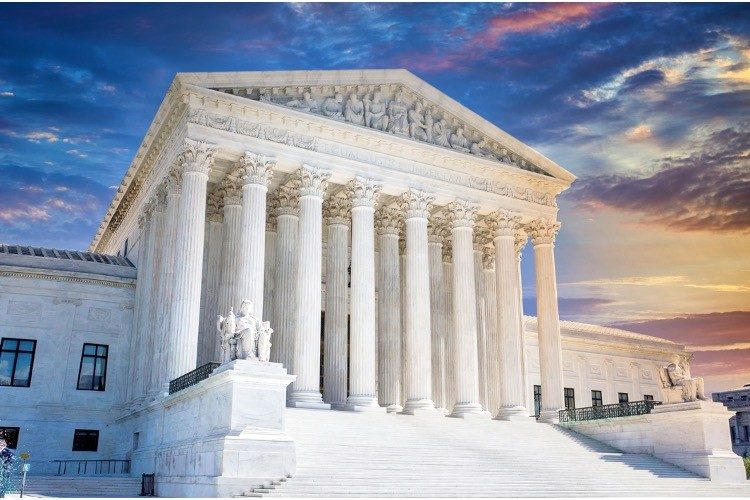
The Supreme Court announced Monday that it would hear a case challenging a Mississippi law banning abortions after 15 weeks of pregnancy.
The Gestational Age Act, enacted in 2018, prohibits abortions after 15 weeks except in cases of medical emergencies or severe fetal abnormalities.
Pro-abortion forces immediately took the law to court, and a federal judge appointed by President Barack Obama issued a temporary restraining order against it.
The state appealed the order, but the Fifth Circuit Court of Appeals upheld it. “States may regulate abortion procedures prior to viability so long as they do not impose an undue burden on the woman’s right, but they may not ban abortions,” wrote Judge Patrick Higginbotham. “The law at issue is a ban.”
The state then appealed to the Supreme Court, which “put off action on the case for several months,” the Associated Press reported. During that time, pro-abortion Justice Ruth Bader Ginsburg died, and President Donald Trump appointed Amy Coney Barrett, a pro-lifer who has criticized Roe v. Wade and stated that “a justice’s duty is to the Constitution and that it is thus more legitimate for her to enforce her best understanding of the Constitution rather than a precedent she thinks is clearly in conflict with it.”
Indeed, as the AP lamented, the court’s “majority” in favor of the status quo on abortion “no longer exists.” Justice Clarence Thomas is explicitly opposed to Roe. Although Trump-appointed Justices Neil Gorsuch and Brett Kavanaugh, in LifeSiteNews’ words, “both expressed respect for Roe’s status as precedent” during their confirmation hearings, they have also signaled their willingness to uphold some state-level abortion restrictions. Justice Samuel Alito, too, has leaned toward enforcing the Constitution, which leaves the matter of abortion up to the states (Justice William Rehnquist, in his dissent from Roe, pointed out that states had been regulating the procedure since 1821), rather than the Burger Court’s “emanations.”
The current case, Dobbs v. Jackson Women’s Health Organization, “is not a direct challenge to” Roe, observed the AP. Nevertheless, those committed to unrestricted abortion consider it a threat.
“Alarm bells are ringing loudly about the threat to reproductive rights,” Center for Reproductive Rights President and CEO Nancy Northrup said in a statement. “The Supreme Court just agreed to review an abortion ban that unquestionably violates nearly 50 years of Supreme Court precedent and is a test case to overturn Roe v. Wade.”
However, the court has handed down other decisions that are difficult to reconcile with Roe. “Mississippi’s law highlights a conflict between the Supreme Court’s ruling in Roe v. Wade and the court’s repeated affirmation in subsequent cases that states have a legitimate interest in limiting abortion and protecting ‘vulnerable and innocent life’ from the moment of conception,” noted LifeNews.com
“Every human life is valuable, and Mississippi’s law is a commonsense step toward protecting unborn children and their mothers from the harms of late-term abortion,” Alliance Defending Freedom (ADF) Senior Counsel Denise Harle said in a press release. “The law protects the life of a baby who can already move around and kick in her mom’s womb — a child who has a heartbeat, can taste what her mom eats, and can experience pain. And the law also protects women, since late-term abortions grow increasingly dangerous to the mother’s health. Women and their children both deserve real health care; that’s why we’re glad the Supreme Court has decided to take up this matter.”
Mississippi argues that the Supreme Court’s “viability” test for whether or not to allow abortion is arbitrary and conflicts with the state’s responsibility to protect “vulnerable and innocent life.”
Furthermore, as ADF Senior Counsel and Vice President of Appellate Advocacy John Bursch explained, “Thanks to amazing progress in scientific research and medical technology, the concept of ‘viability’ is an ever-moving target as younger children have survived and thrived after preterm birth. But ‘viability’ has never been a legitimate way to determine a developing infant’s dignity or to decide anybody’s legal existence. The high court should take this important opportunity to resolve the conflicts between its previous rulings and affirm the constitutionality of Mississippi’s law.”
The court is expected to hear the case in the fall and issue a decision next spring.



